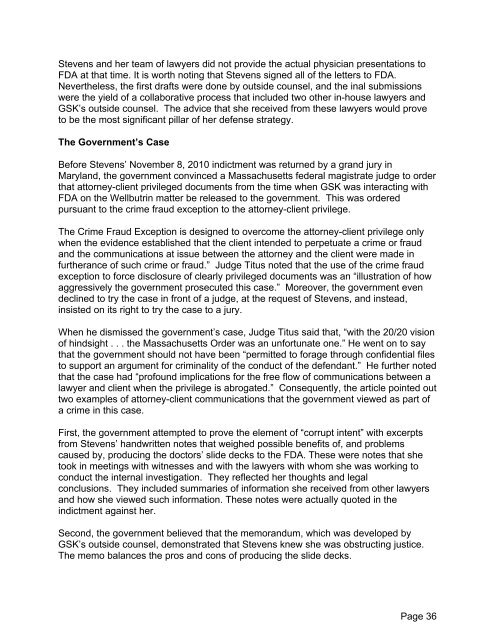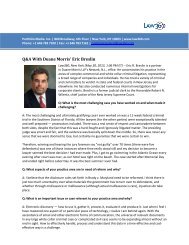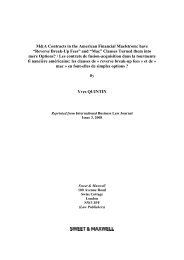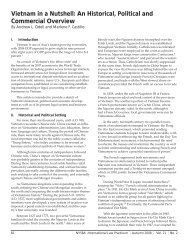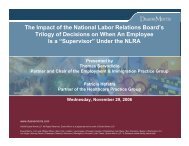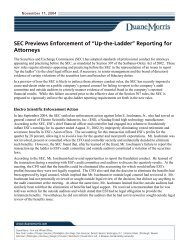Common Ethics Issues Jointly Addressed by In ... - Duane Morris LLP
Common Ethics Issues Jointly Addressed by In ... - Duane Morris LLP
Common Ethics Issues Jointly Addressed by In ... - Duane Morris LLP
- No tags were found...
You also want an ePaper? Increase the reach of your titles
YUMPU automatically turns print PDFs into web optimized ePapers that Google loves.
Stevens and her team of lawyers did not provide the actual physician presentations toFDA at that time. It is worth noting that Stevens signed all of the letters to FDA.Nevertheless, the first drafts were done <strong>by</strong> outside counsel, and the inal submissionswere the yield of a collaborative process that included two other in-house lawyers andGSK’s outside counsel. The advice that she received from these lawyers would proveto be the most significant pillar of her defense strategy.The Government’s CaseBefore Stevens’ November 8, 2010 indictment was returned <strong>by</strong> a grand jury inMaryland, the government convinced a Massachusetts federal magistrate judge to orderthat attorney-client privileged documents from the time when GSK was interacting withFDA on the Wellbutrin matter be released to the government. This was orderedpursuant to the crime fraud exception to the attorney-client privilege.The Crime Fraud Exception is designed to overcome the attorney-client privilege onlywhen the evidence established that the client intended to perpetuate a crime or fraudand the communications at issue between the attorney and the client were made infurtherance of such crime or fraud.” Judge Titus noted that the use of the crime fraudexception to force disclosure of clearly privileged documents was an “illustration of howaggressively the government prosecuted this case.” Moreover, the government evendeclined to try the case in front of a judge, at the request of Stevens, and instead,insisted on its right to try the case to a jury.When he dismissed the government’s case, Judge Titus said that, “with the 20/20 visionof hindsight . . . the Massachusetts Order was an unfortunate one.” He went on to saythat the government should not have been “permitted to forage through confidential filesto support an argument for criminality of the conduct of the defendant.” He further notedthat the case had “profound implications for the free flow of communications between alawyer and client when the privilege is abrogated.” Consequently, the article pointed outtwo examples of attorney-client communications that the government viewed as part ofa crime in this case.First, the government attempted to prove the element of “corrupt intent” with excerptsfrom Stevens’ handwritten notes that weighed possible benefits of, and problemscaused <strong>by</strong>, producing the doctors’ slide decks to the FDA. These were notes that shetook in meetings with witnesses and with the lawyers with whom she was working toconduct the internal investigation. They reflected her thoughts and legalconclusions. They included summaries of information she received from other lawyersand how she viewed such information. These notes were actually quoted in theindictment against her.Second, the government believed that the memorandum, which was developed <strong>by</strong>GSK’s outside counsel, demonstrated that Stevens knew she was obstructing justice.The memo balances the pros and cons of producing the slide decks.Page 36


